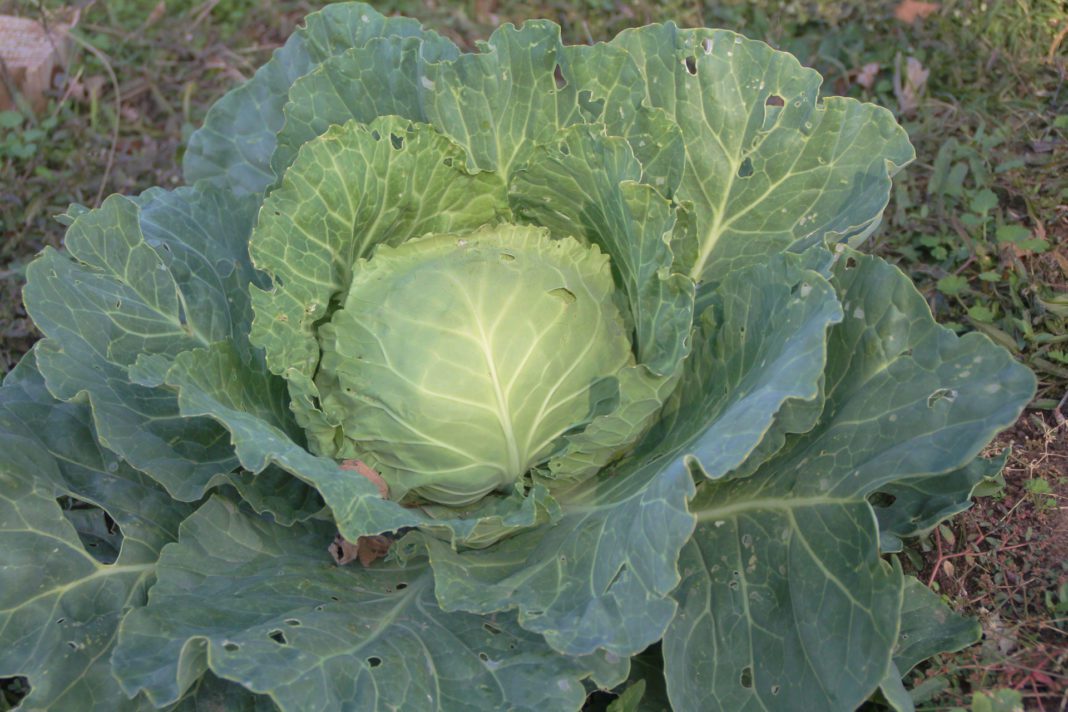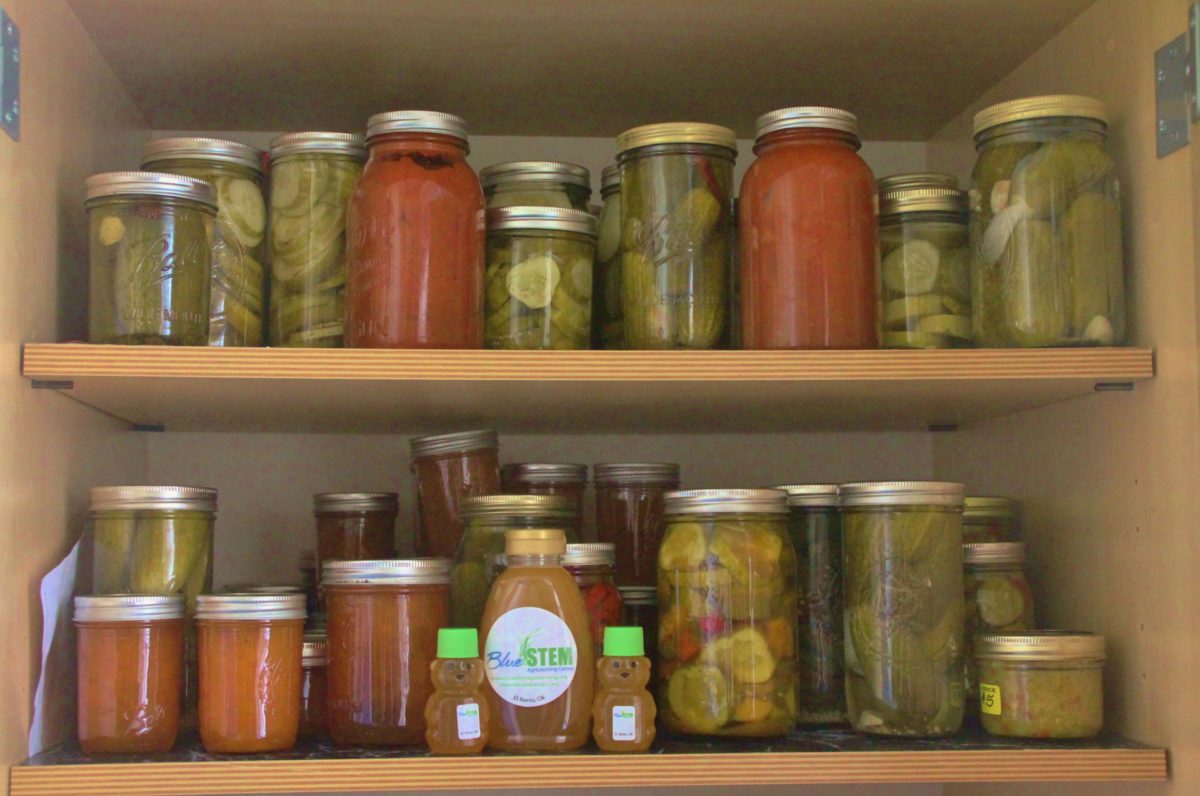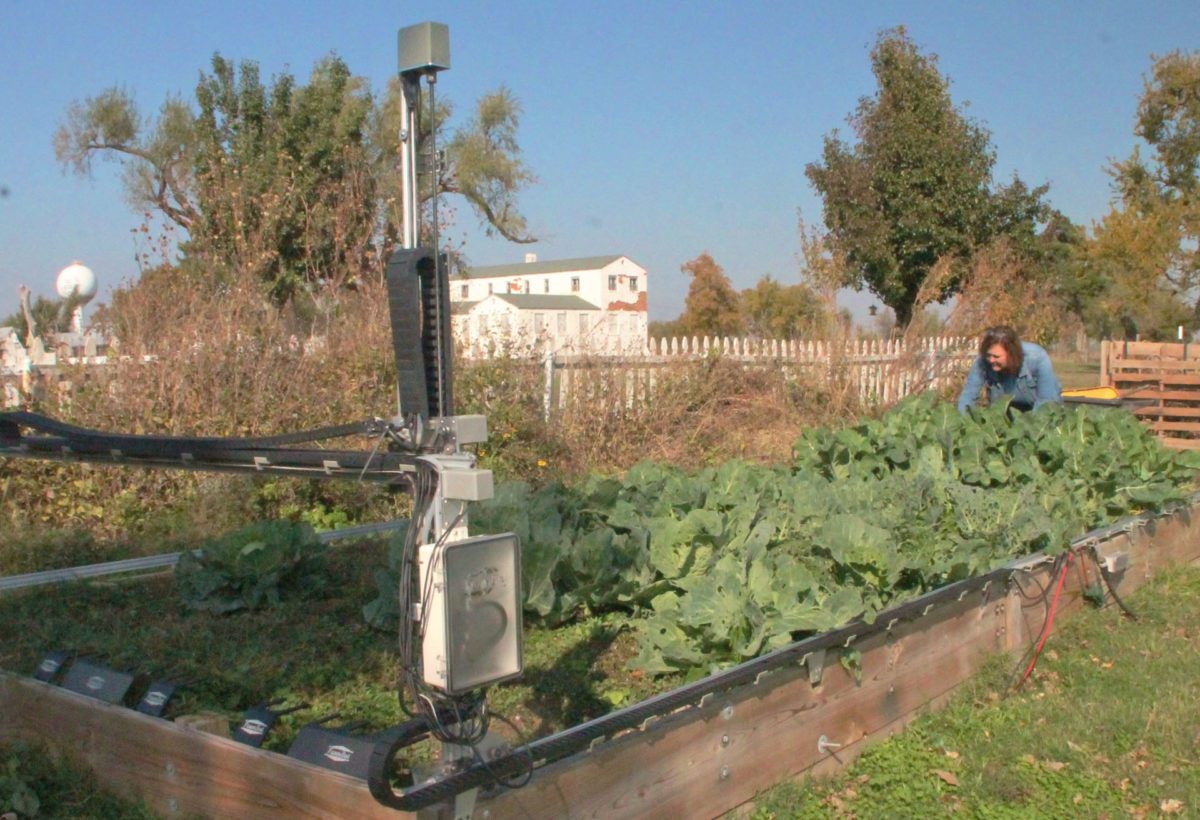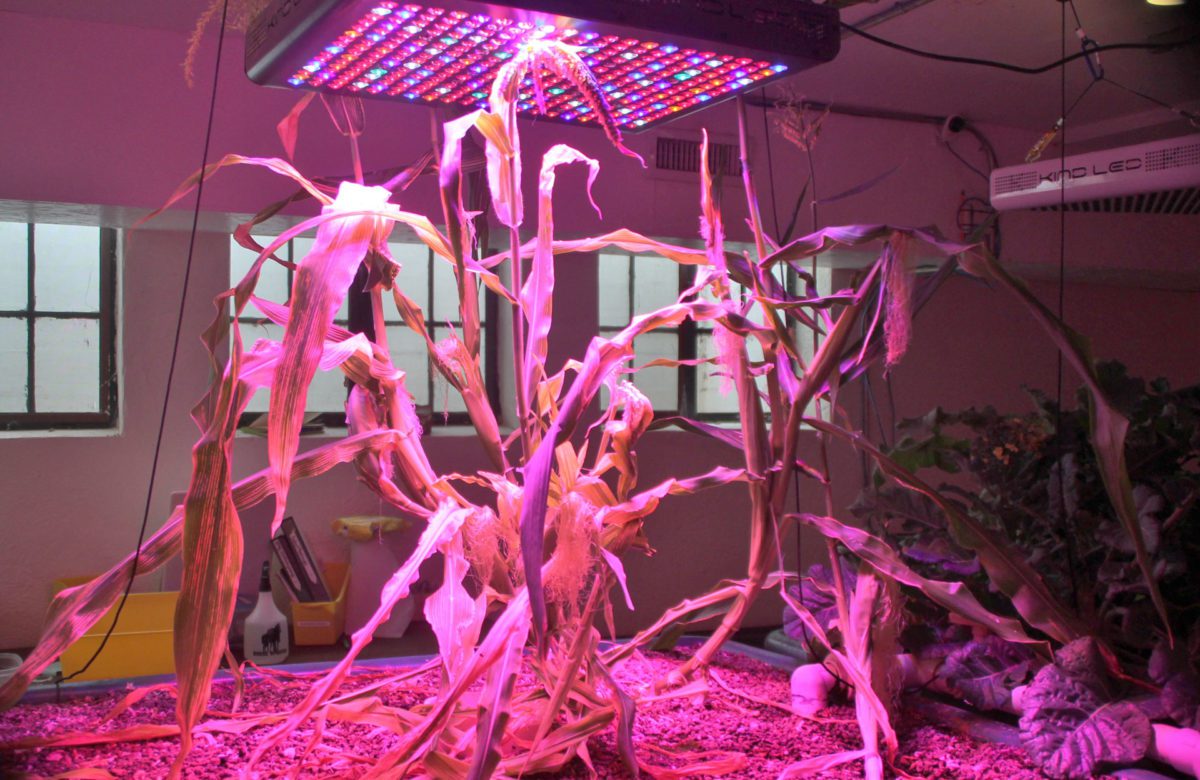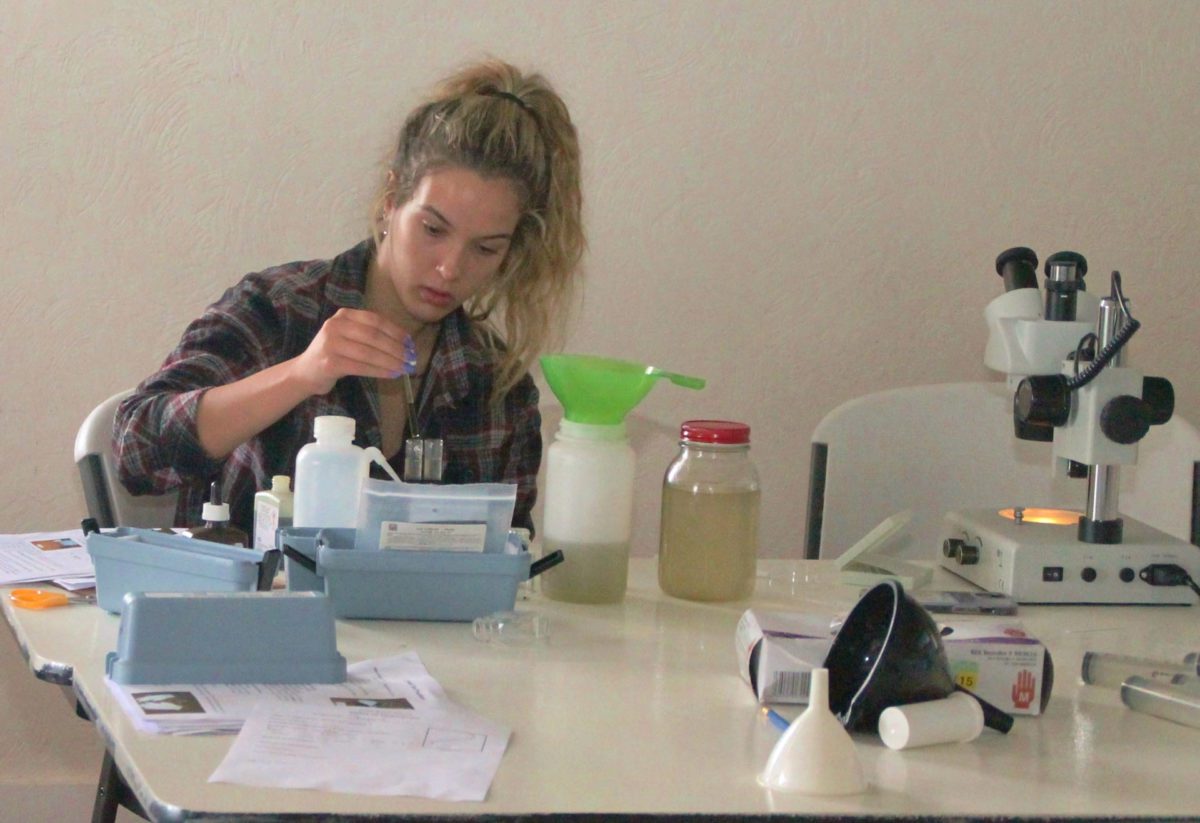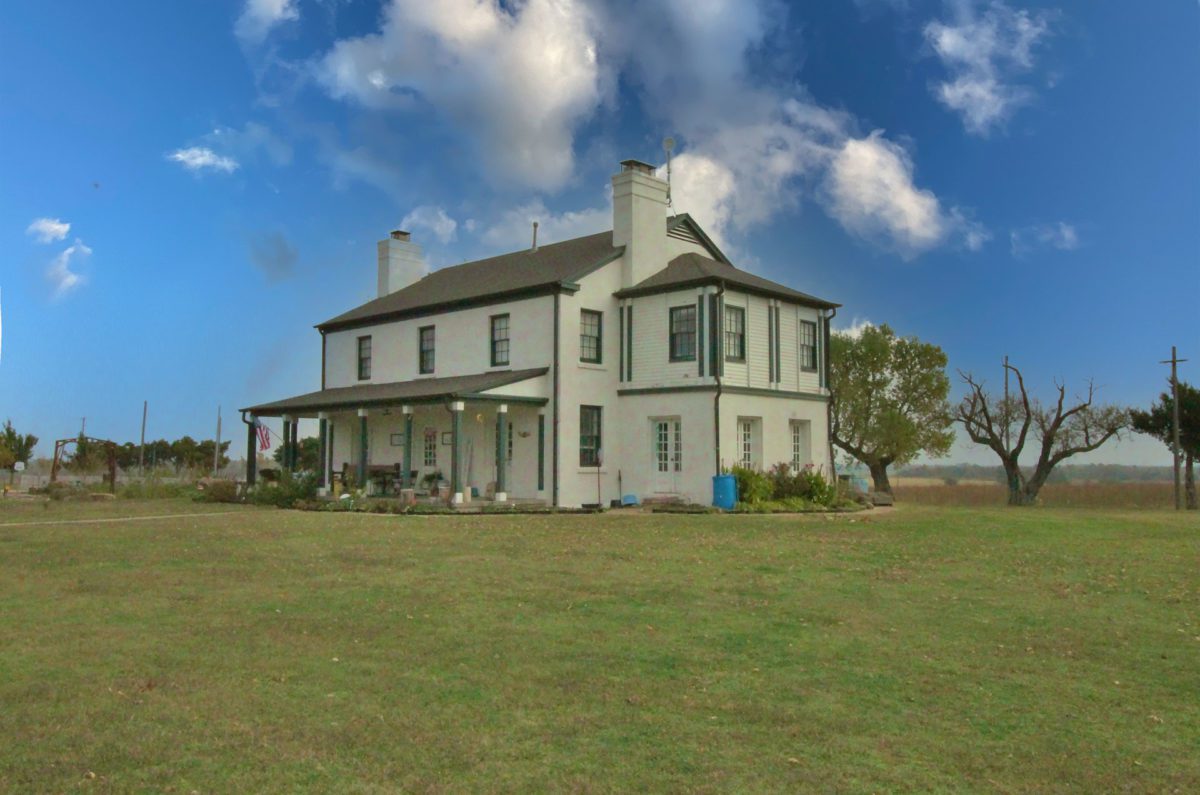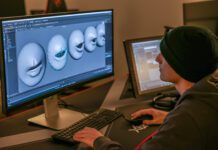Not your average historic building, an 1876 commanding officer’s domicile is now home to BlueSTEM AgriLearning Center. Enhancing STEM curriculum, the center reimagines and tailors education for its students, partnering with schools and teachers alike.
The nonprofit’s director, Ann Marshall, says pupils from Yukon, El Reno and Calumet currently take classes at BlueSTEM, but she hopes to expand into other districts.
Marshall tells about an aquaponics system in the basement. A bottom tank holds gold fish, and their excrement fertilizes plants growing up top. And the FarmBot project centers around feeding a growing population.
“Using an app on their phones, students control planting and watering per the plants’ needs,” says Marshall. “FarmBot gets rid of weeds and tells students when to harvest. It’s designed for smaller spaces, such as urban farms or schools.”
Kristy Ehlers, director of school partnerships and special projects, says that the center has “projects on everything including flooding, rumen digestibility, plant genetics, climate, animal nutrition, hydrology, weather and more. Students don’t have to be top grade-makers in school. We’re looking for kids who want and like to learn differently. An all-hands-on-diverse situation, our expectations are high. We teach students to think, and to think outside the box.”
Marshall continues: “There are other STEM centers, but this is unique. Students do primary research and work one-on-one with real scientists and real experts in the field. They also care for the vegetable garden, can and pickle vegetables, make jelly, feed our bees and harvest honey,” she says. “Students design their projects, gather data, write scientific papers, and then create posters. And they present at symposiums and competitions at colleges and universities. Our kids become experts in a subject. The classes are free. We only charge tuition on our educational days, and then we charge to cover our costs. Pre-COVID, busloads of students came here for outdoor education days. Our county master gardeners maintain our Monarch Way Station, and they grow our pollinator garden.”
Ehler says that if “a student has an interest, and we don’t have something developed, we make it happen. Students get high school credit in an advanced science, and can get college credits. Some of our research data goes to the EPA and the Oklahoma Conservation Commission.”
Board member Keri Conley’s children attended BlueSTEM classes.
“Students learn how to be stewards of the world we live in,” she says. “This place is magic.”
Photos by Carol Mowdy Bond
What’s In a Name
Located on Route 66 a bit west of El Reno on historic Fort Reno’s grounds, BlueSTEM’s name derives from a native prairie grass. The USDA’s Agricultural Research Service Grazinglands Research Laboratory, also on the grounds, includes a tall grass prairie preserve.
Launched in 2015 with three students and a USDA grant, BlueSTEM’s original goal was to teach “citizen science” and show the community that science is everywhere. Primarily partnering with the USDA, BlueSTEM grew by word of mouth and social media. There are now 32 students, with no more than 15 to 16 students in the building at one time, attending classes Monday through Thursday. Pre-COVID, thousands were involved in BlueSTEM programs. Grants and individual financial supporters fund the program, along with fundraisers including annual poinsettia sales.






















